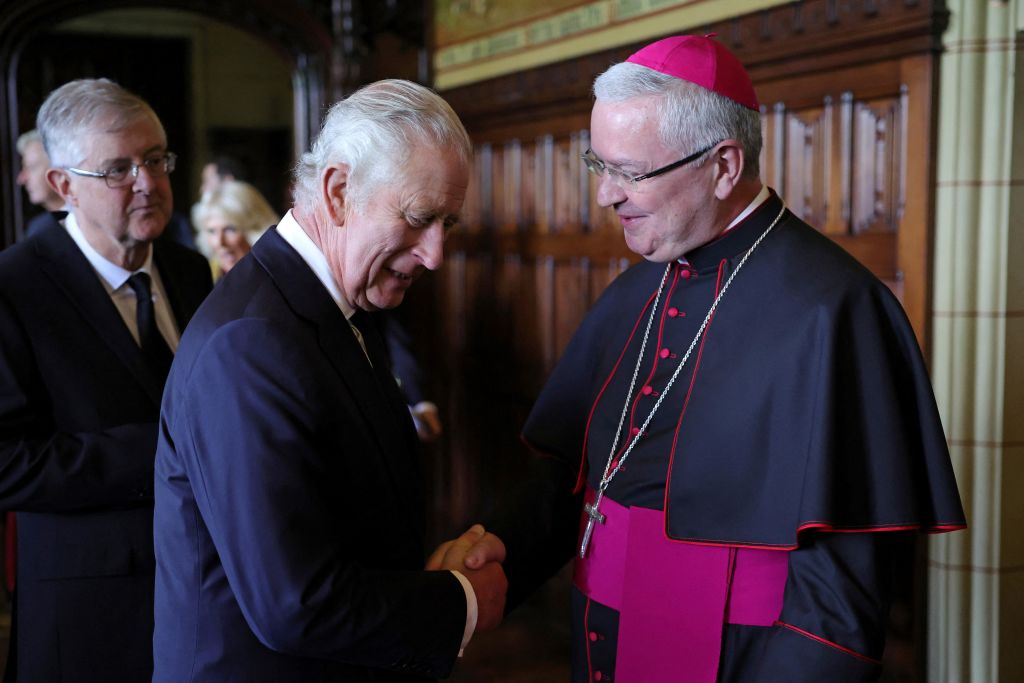The Most Reverend Mark O’Toole, Archbishop of Cardiff-Menevia, is calling on Catholics and people of "goodwill" living in Wales to write to their member of the Senedd, the Welsh Parliament, to oppose assisted suicide.
Members of the Senedd will be asked to decide whether Wales should give its consent to the Terminally Ill Adults (End of Life) Bill, the law being proposed by Westminster that would legalise assisted suicide.
This would be a profound change for Wales and would mean that, for the first time, doctors could be asked to assist a patient in ending their life intentionally, notes the Catholic Bishops' Conference of England and Wales.
“As a nation, Wales has always valued compassion, care, and the protection of the vulnerable,” said Archbishop O’Toole. “The proposal before the Senedd, driven by legislation from Westminster, risks eroding those values by suggesting that some lives are less worth living.
“True compassion means accompanying people in their suffering, not ending their lives.
“I encourage everyone of goodwill to make their voices heard – to urge Members of the Senedd to reject this Bill and to support better palliative care and mental health provision, so that every person in Wales can live their final days surrounded by love, not despair.
“If enacted, this bill would put the most vulnerable in society at risk of coercion.”
The archbishop also drew attention to the conscientious objection clause for doctors as being “inadequate”.
He also highlighted that the UK Parliament has explicitly rejected an amendment to allow care homes and hospices to opt out of facilitating assisted suicide on their premises even though many care homes and hospices will want no involvement.
“Even with stricter rules, experience from other countries shows that once assisted suicide is introduced, the safeguards soon loosen and those who are elderly, disabled, or feel they are a burden begin to feel subtle pressure to choose death," Archbishop O’Toole said.
“Wales deserves better. If you live in Wales, you can stand for dignity and true compassion by using our e-Action form to contact a member of the Senedd. You can make your voice heard.
“The focus should be on improving palliative care, supporting families, and ensuring that no one dies in pain or isolation – not on creating a system that risks normalising the taking of life," the archbishop concluded.
"Whatever your faith or background, this is a moment to speak up for a Wales that protects the vulnerable.”
The new Archdiocese of Cardiff-Menevia was created following a decision promulgated by Pope Francis on 12 September 2024 and coinciding with the Feast of the Holy Name of Mary.
The decision and the unification “marks a significant milestone for the Catholic community in South Wales and Herefordshire”, said the then Archbishop of Cardiff Mark O'Toole, who afterward became the Archbishop of Cardiff-Menevia, having served as Archbishop of Cardiff and Bishop of Menevia since 2022.
The decision to unite the two dioceses followed a series of Open Listening Sessions held across both dioceses earlier in 2024, during which clergy and laity engaged in discussions about the proposed unification.
Wales has a long history of Christianity. Its origins date back to Roman times, when the "new faith" arrived and was then spread by the troops occupying fortresses and towns and by traders from Gaul.
In 1916, the Cardiff Province was established, comprising the Metropolitan Archdiocese of Cardiff with the diocese of Menevia as a suffragan see.
Since 1897, the Menevia diocese included most of Wales, and this presented a variety of difficulties. In particular, travel between the north and south Wales was a problem.
There were differences too, between the two areas in terms of geography, history and public administration that made the development of a unified diocese difficult.
These and other pastoral considerations led to a petition to Rome for a third diocese. When the Province was restructured in 1987, Bishop Hannigan was translated to the new diocese of Wrexham and Daniel Mullins became bishop for the restructured Menevia diocese.
RELATED: Catholic hospices face closure after MPs pass assisted suicide Bill
The e-Action form discussed by the archbishop can be accessed here
Photo: Britain's King Charles III meets with then Archbishop of Cardiff Mark O'Toole at a reception for local charities at Cardiff Castle, Cardiff, Wales, 16 September 2022 (Photo by CHRIS JACKSON/POOL/AFP via Getty Images)

















